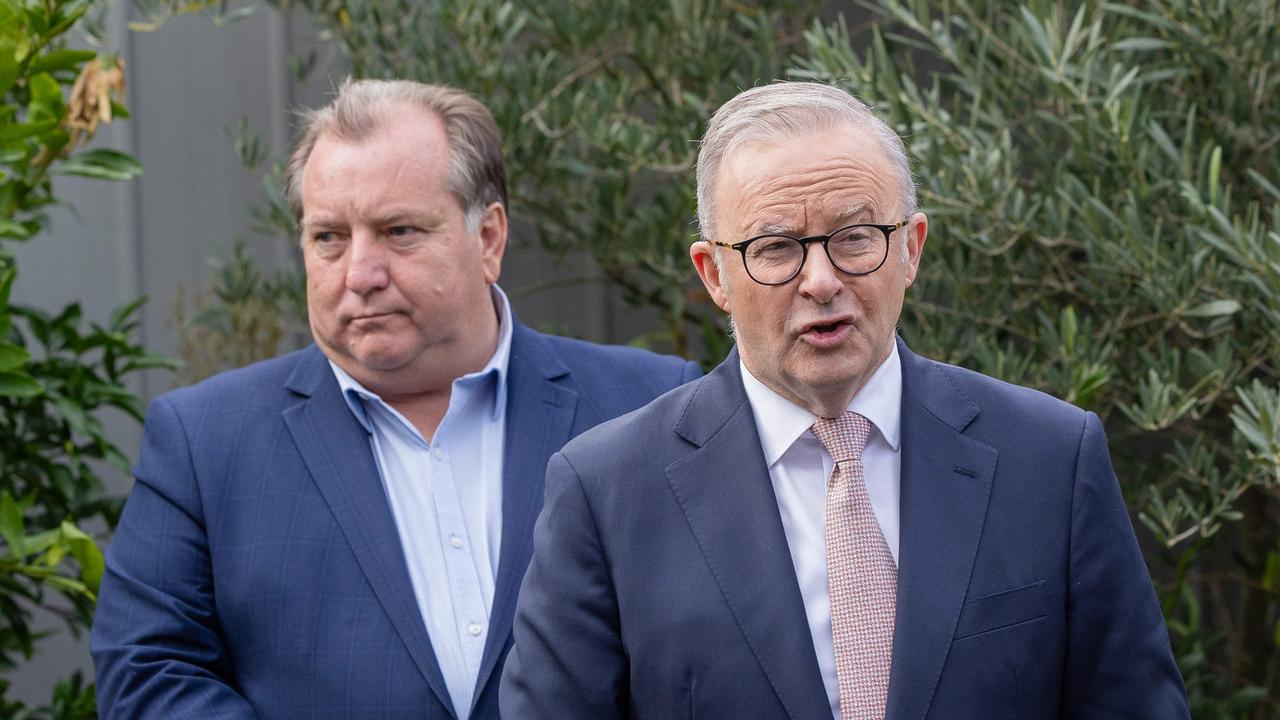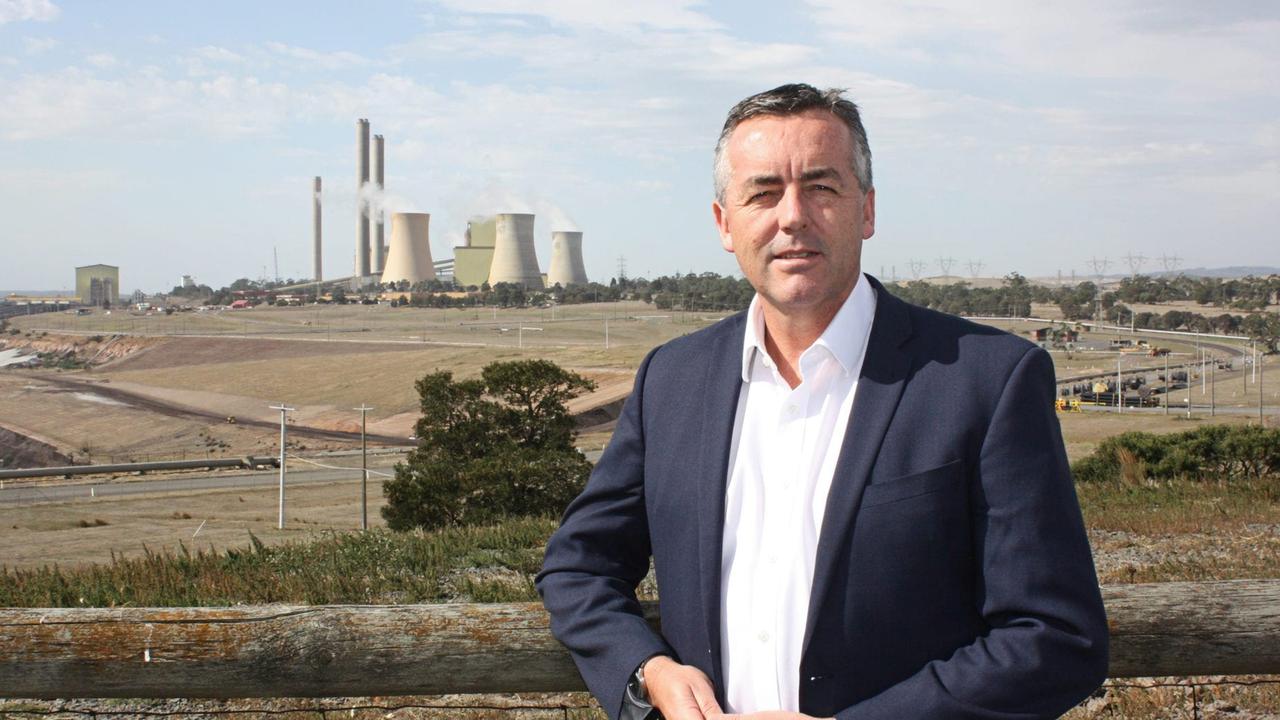New biosecurity levy: What farmers will pay
Here’s the breakdown of what each commodity will pay under the new biosecurity levy announced in Tuesday night’s budget.
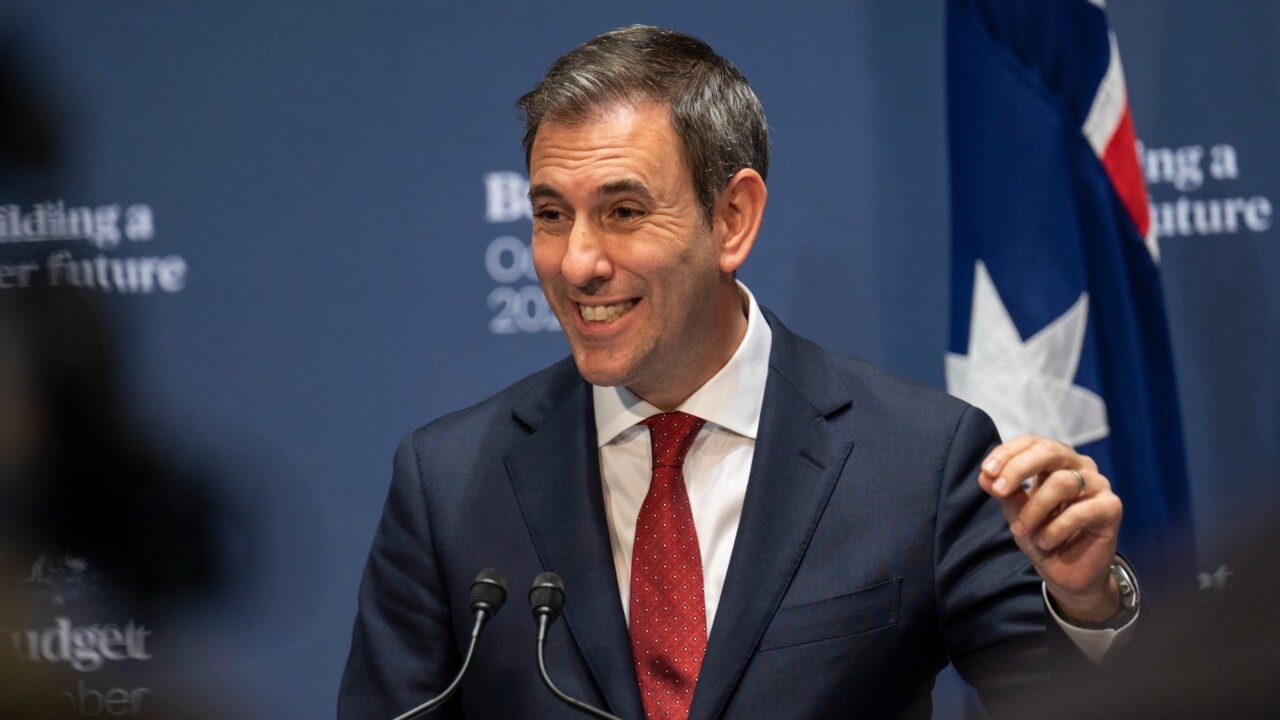
Farmers will pay almost $48 million a year to help bankroll Australia’s revamped biosecurity funding system via a new levy on all products.
While industry welcomed the long-sought sustainable funding model announced in Tuesday night’s federal budget, agriculture leaders declared the “surprise raid on farmers’ hip pockets” as “bittersweet”.
According to the Department of Agriculture, producers will contribute $47.5 million, or 6 per cent, of the total $804 million biosecurity spend from 2024-25.
Importers will pay the lion’s share of $363 million, or 45 per cent; taxpayer coffers will contribute $350 million, or 44 per cent; a new charge on imports valued at $1000 or under will collect $27 million; or 3 per cent; and Australia Post users $15 million, or 2 per cent.
The agricultural biosecurity protection levy will be a pro-rata system, equivalent to 10 per cent of 2020-21 industry-led agricultural levies. It will apply to all domestic agricultural, fisheries and forestry producers from July 1 next year, after a period of industry consultation.
COUNTING THE COST: Biosecurity protection levy charges.
CATTLE (grass fed) producers will pay an extra $0.5 or 50 cents per head;
COTTON growers will pay an extra $0.225 or 22.5 cents per 227kg bale;
EGG producers will pay an extra $0.0325 or 3.25 cents per chick;
APRIARISTS will pay an extra $0.0046 or less than 0.5 cents per kg of honey;
APPLE producers will pay an extra $0.001845 or less than 0.19 cents per kg of apples;
PINE plantation producer will pay an extra $0.0105 or 1.05 cents per cubic metre of the log;
OTHER timber producers will pay an extra $0.005 or 0.5 cents per cubic metre of the log; and
PRAWN farmers will pay an extra $0.00665 or less than 0.67c per kg of whole farmed prawns.
The department stated that for “producers with commodities not subject to statutory levies, arrangements will be negotiated on a commodity-specific basis.”
“Feedback from consultation on the development of long-term sustainable funding model for biosecurity was clear – a strong biosecurity system is of national significance and should be funded by risk creators as well as beneficiaries,” it said.
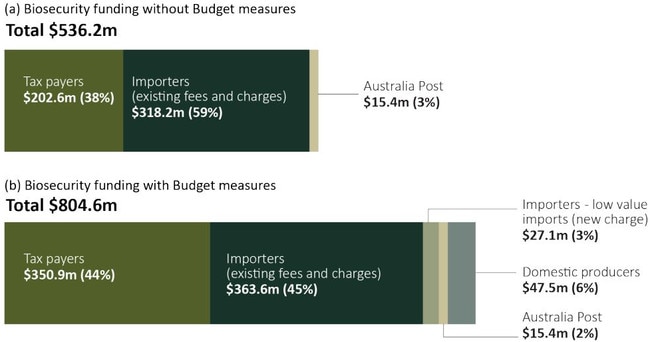
While farmers acknowledged the need for an increase in government biosecurity spending, National Farmers’ Federation president Fiona Simson said the levy was “a bitter pill to swallow” as farmers were already a significant contributor to the biosecurity system.
Those contributions include research and development costs, emergency plant pest response, marketing and funding of traceability systems, biosecurity organisations, and meeting the cost of outbreaks.
Ms Simson said it was “extremely disappointing” that a producer levy was announced instead of a broad-based container levy “that forced risk creators to underwrite the system”.
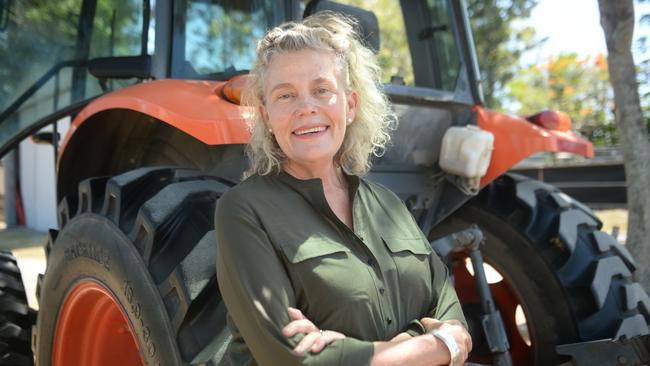
A container levy has been discussed at high levels for several years.
GrainGrowers chief executive Shona Gawel said the levy against farmers was “disappointing” as they were not risk creators.
She called on the government to reconsider its “shortsighted decision”.
“The Agriculture Minister Murray Watt only recently endorsed an independent report by the
Invasive Species Council that suggested the people who create the biosecurity risks need to pay their fair share,” she said.
“The imposition of what the government believes is a “modest levy” is neither fair or well directed.”
In a post-budget breakfast speech this morning, Mr Watt said the government decided a mixed funding model was “the fairest approach”.
“It won’t surprise you to know that the consultation process around a new funding model found that, while everyone agreed we should spend more on biosecurity, a lot of people thought someone else should pay for it,” he said.
“I recognise that our producers do make a contribution towards biosecurity – through their on-farm costs, membership fees for Animal Health Australia and Plant Health Australia and levies in the event of an outbreak.
“But higher and more predictable base funding will enable longer-term planning to help keep our agriculture and environment safer from the introduction of pests, diseases and weeds.”
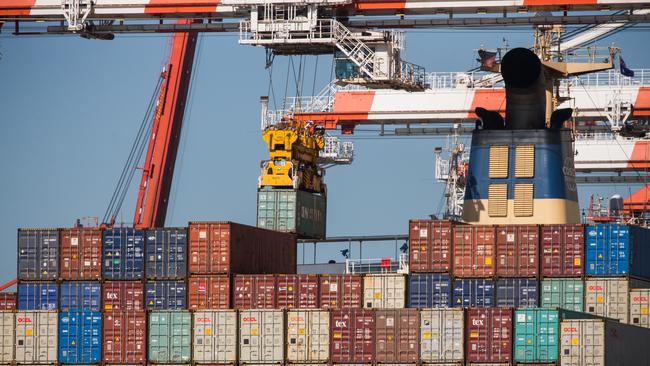
Nationals leader David Littleproud labelled the biosecurity protection levy on farmers “a new food tax”.
He said charging farmers to pay for the biosecurity risk of international importers was “senseless” and would be passed onto consumers and inflate grocery bills.
“It is unfathomable the Labor Government would ask farmers to pay for the biosecurity costs of importers from other countries,” Mr Littleproud said.
“The Coalition proposed a cost-recovery model that importers would pay commensurate to the risk provided, rather than farmers, and the model was ready for implementation before the end of last year.”
It is currently not clear how the rates were determined, however Mr Watt previously said “importers do pay different types of fees and charges, depending on the kind of import that they’re bringing in”.
“So whether it’s a container that might be different to a car which might be different to a horse, so it might not be possible to give you a uniform figure,” he said.
“So, depending on the product, you’re looking at different types of fees and charges.”



